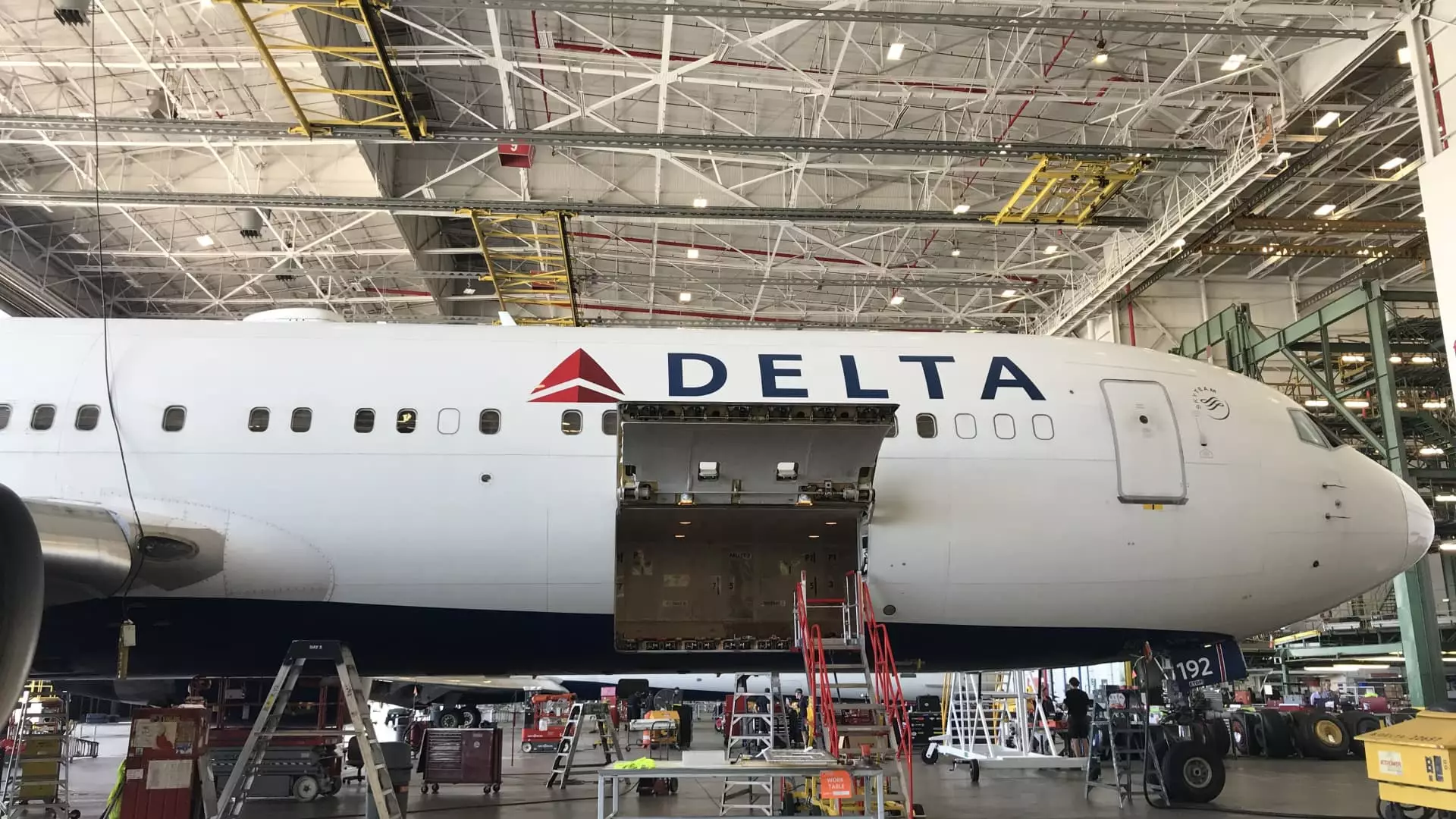Delta Air Lines is confidently projecting an increase in earnings for the fourth quarter of the fiscal year, driven primarily by a robust travel demand and excellent bookings in anticipation of the year-end holiday season. The Atlanta-based airline has projected adjusted earnings per share (EPS) in the range of $1.60 to $1.85, surpassing the Wall Street estimate of $1.71 according to recent analysis by LSEG. This marks a significant uptick from the $1.28 per share reported at the same period last year, highlighting the company’s ability to rebound in the post-pandemic travel landscape.
This optimistic outlook is further bolstered by revenue expectations, which Delta anticipates will rise by 2% to 4% compared to the previous year, although this is slightly below market expectations for a 4.1% increase. A noteworthy consideration for Delta’s outlook involves the upcoming U.S. presidential election on November 5, which the airline’s CEO, Ed Bastian, suggests may introduce some uncertainties into consumer behavior. Given historical patterns observed during election years, Bastian indicated that it is reasonable to expect a temporary reduction in discretionary spending, affecting travel decisions in the short term.
In analyzing Delta’s performance during the third quarter, it was a period marked by notable challenges alongside promising results. The airline reported an adjusted earnings per share of $1.50, slightly lower than the $1.52 analysts had forecasted. Revenue for the quarter was reported at $14.59 billion, falling short of the anticipated $14.67 billion. A considerable factor contributing to these figures was the CrowdStrike outage in July, which inflicted significant operational setbacks. This cyber incident resulted in a direct impact on earnings, costing Delta an estimated 45 cents per share and translating to a dramatic revenue loss of $380 million due to canceled flights and operational disruptions.
CEO Ed Bastian has been vocal about pursuing compensation from both CrowdStrike and Microsoft for the disruptions caused, stating that the ramifications of the incident warrant fair restitution. Currently, the matter is being handled by Delta’s legal team, underscoring the company’s determination to address financial repercussions stemming from the outage.
Despite grappling with operational challenges, Delta managed to report a 15% increase in net income year-over-year, reaching $1.27 billion for the three-month period ending September 30. Total revenue showed a modest rise of 1%, gathering $15.68 billion. Notably, passenger revenue remained consistent with the previous year, although premium offerings, including first-class sales, have shown a remarkable surge, demonstrating evolving consumer preferences.
Delta is navigating a domestic market characterized by overcapacity, which has kept a cap on fares. Nonetheless, Glen Hauenstein, Delta’s president, remarked on the normalization of industry supply growth, positioning the airline favorably as the year concludes and eyeing opportunities in 2025. The fruits of this adaptive approach are evident as Delta plans to increase its operational capacity by 3% to 4% in the final quarter of the year, intending to capitalize on expected year-end travel demand.
As the airline gears up for the fourth quarter, Delta remains steadfast in its expectation of achieving full-year adjusted earnings between $6 and $7 per share, excluding the financial impacts linked to the CrowdStrike event. This targeted outlook reflects management’s confidence in the airline’s resilience and market positioning amidst a shifting industry landscape.
As Delta moves forward, the airline must navigate not only the immediate uncertainties surrounding the presidential election but also the broader economic climate that influences consumer spending. In an era where travel preferences continue to shift and operational challenges loom, Delta’s proactive strategies could prove crucial in sustaining its momentum and securing a strong finish to the year. Ultimately, how Delta balances growth aspirations with impending challenges will be pivotal in shaping its trajectory in the competitive airline industry moving into 2025 and beyond.


Leave a Reply